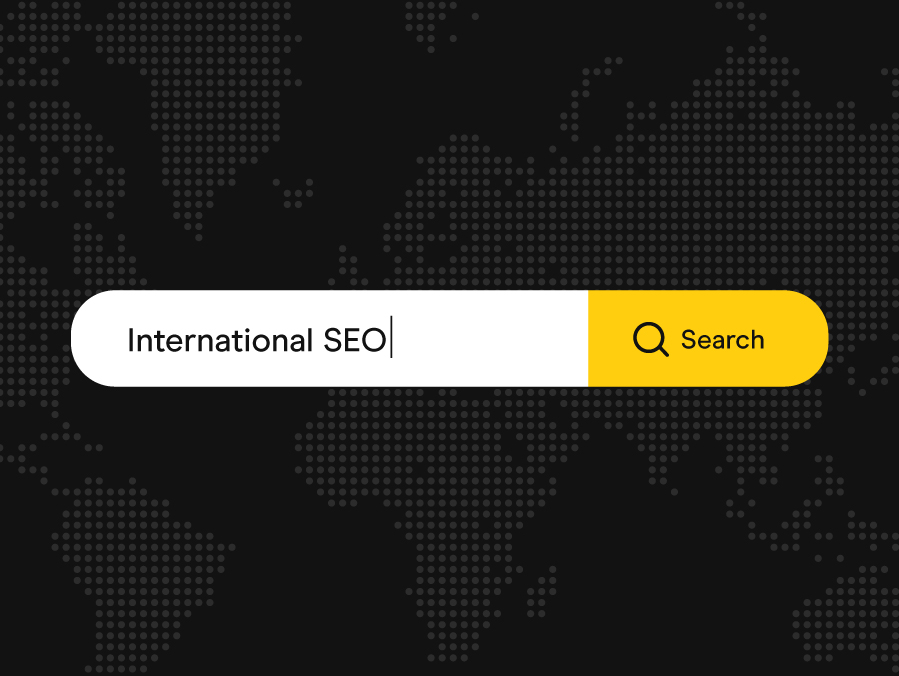Organic search is an untapped opportunity for many financial services brands. They are often keen to invest in brand, values, tone of voice and audience personas. Yet organic search is frequently neglected in this industry. Let’s explore why that’s a mistake.
SEO isn’t an overnight process
Firstly, an admission. I’ve personally dedicated my career to SEO (search engine optimisation) and I’m passionate about the discipline. But I’m also aware that it is not an overnight solution.
It’s vital to be aware of SEO’s long-term nature and not be disappointed when it can’t triple traffic in a couple of days. It has to be part of a long-term strategy to improve the visibility and engagement of a brand’s website.
That’s because the changes to your website SEO recommends can take a while to be picked up in a search engine’s “index” (their library of the internet). The channel is organic, so they are picked up naturally. Yes, there are ways to speed up the process, but patience will always be needed.
Anticipating users’ needs at different stages
It’s often said that a website is your business’s shop window. In truth, websites are more complex than that. I like to think of it more like a branch of IKEA.
- You walk up to the entrance, step through the front doors – you’re on the homepage.
- You read the signpost to see where each department is located. That’s the website menu navigation.
- You stroll through the showrooms – you’re browsing the category, service, or case study pages, waiting for inspiration to strike.
- Or maybe you know the shortcut through the restaurant to get straight to the goods – you’re heading straight to a particular product or guide page. You know what you’re after and just want detailed information.
At each stage, each visitor to Ikea has different intentions and therefore requires different information.
How does that analogy work with a financial services website?
Well, imagine a user arriving at the site knowing that they wish to invest some savings. If they’re not sure which product to choose, they need persuasion or information that will nudge them towards a decision.
What if they do know what they want? Pensions advice for example. In that case, they need a deep dive—as much carefully presented information as possible.
The difference SEO can make
This is where financial services can benefit from organic search. SEO enables you to reach prospects and clients at multiple stages of their journey. All the way from the initial trigger to the research phase, then on to conversion and nurture.
By creating content that targets the keywords searchers use at different stages of their journey, you can make their intentions work for you, and tell them what they need to be told.
Sometimes that means providing an in-depth “everything you need to know” article. At other times, it’s more effective to gently educate the visitor, by introducing the world of investments, insurance, banking – whatever your website is offering.
Understanding Google’s quality rating guidelines
To appear in Google’s search results, you need to “rank” for certain keywords, so it’s important to understand how Google Search works, and how search engines classify high quality content.
Google exists primarily to provide users with information. That sounds simple. But to deliver on that promise, Google needs to determine what qualifies as good information and what doesn’t. This is anything but simple, because there are so many factors in play, including search intent and user expectations, plus the evolving world of digital trends and behaviours.
You’ve probably heard of Google’s infamous algorithm updates. These ‘penalise’ sites that aren’t delivering quality content by relegating their visibility in the search results. As a result, fewer people see the website in Google’s results, and it receives less traffic.
What does Google rank highly content-wise? Let’s focus on two key concepts: E-E-A-T and YMYL.
What is E-E-A-T?
E-E-A-T stands for Experience, Expertise, Authority and Trust. It’s one of Google’s methods of evaluating and understanding the quality of a webpage or a piece of content.
Rather than a checklist to complete to prove quality, E-E-A-T is more like an ethos to live by; a standard to have in mind when creating content or looking for ways to improve the website’s user experience.
Demonstrating E-E-A-T on your website
- Experience. Does your content demonstrate first hand experience of a product, topic or area, rather than jumping straight into a sales pitch?
- Expertise. Does your site signal to users that you have relevant and credible in-house experts? Do you have author attribution on blog posts? Have your guides been written or fact checked by experts in the field? Most financial services businesses are regulated, so can you demonstrate that your experts have the relevant qualifications and accreditations?
- Authority. How well-known are you in the industry? What do others in the market say about your brand? Are you using PR to amplify your brand, values and offering?
- Trust. Are you showing honest reviews for your product or service? Are you using videos, images, FAQs and other rich media to help demonstrate difficult or complex topics?
What is YMYL?
With Your Money Your Life (YMYL), Google sets a higher standard for information that can cause harm to an individual or society. YMYL is classified as any content or topic that can impact a user’s physical, mental or financial health. For example, providing incorrect financial advice could cause an individual to lose their life savings. Because of the potential for harm in YMYL topics, Google holds these topics to a higher quality rating standard.
In Google’s Search Quality Evaluator Guidelines, human Quality Raters are told to look for the following attributes on YMYL pages:
- Accuracy and consistency. The extent to which the content is consistent with the general consensus.
- Reputation. What professionals and experts in the field say about your brand. Are others referencing your organisation in articles, news or other credible information?
- Content creators. Pages that require a high level of trust, such as YMYL topics, should provide information about who created and is responsible for the content.
Focus on creating high quality content
Content creation demands strategy. A scattergun approach will not deliver the required results. Here are some tips on how to ensure you focus on high quality content for your financial services site:
- Consider all your brand’s services and products. Map them out (ideally alongside your target keywords). Then categorise your content by topic and user journey stage (awareness, consideration, conversion).
- Make the most of your internal talent and subject matter experts. They may have been in the industry for years, and are well-known in your vertical, so harness their wealth of knowledge. They don’t have to fully copywrite each piece if that’s not their skill set. Instead, create briefs with an outline and structure of the article, then ask your expert to fill in the blanks and add their insight/detail. Then send this to a copywriter to craft into flowing copy in your brand tone of voice.
- Feature blog authors on your website, so users can see that content is written by someone with knowledge and experience in the field. This will help you to demonstrate the E-E-A-T element mentioned above.
- Write clearly and simply. Explain acronyms or industry terms. Don’t assume your audience already understands them. The UK Government website instructs its content creators to write for an audience with a reading age of 9 years old. It also reminds us that “the more educated the person and the more specialist their knowledge, the greater their preference for plain English”. If you use jargon and complicated terminology, you’re probably alienating most or all of your audience.
Organic search suits complex financial information
In complex markets such as financial services, concepts and information aren’t always easy to understand. Many people go to Google and other search engines for clarification on financial matters: to break a complex topic down into bitesize chunks they can manage.
If a financial services brand can provide that clarity, it has an amazing opportunity to bring searchers to the business and divert them away from your competitors.
The beauty of organic search is that you can target and convert users at any stage in the customer journey. Focusing just on the conversion stage limits your reach. SEO lets you also create content that targets users in the research phase, when they’re simply wondering or looking for information. That means you’re massively expanding the pool of potential clients.
We’d love to help with that. At TrunkBBI, we have a team of SEO specialists and content writers, who work together, creating great content that ranks organically and converts users. We have a proven ability to deliver success in organic search, traffic generation, and customer conversion for brands like yours.
Get in touch by filling in the form below or giving us a call.




